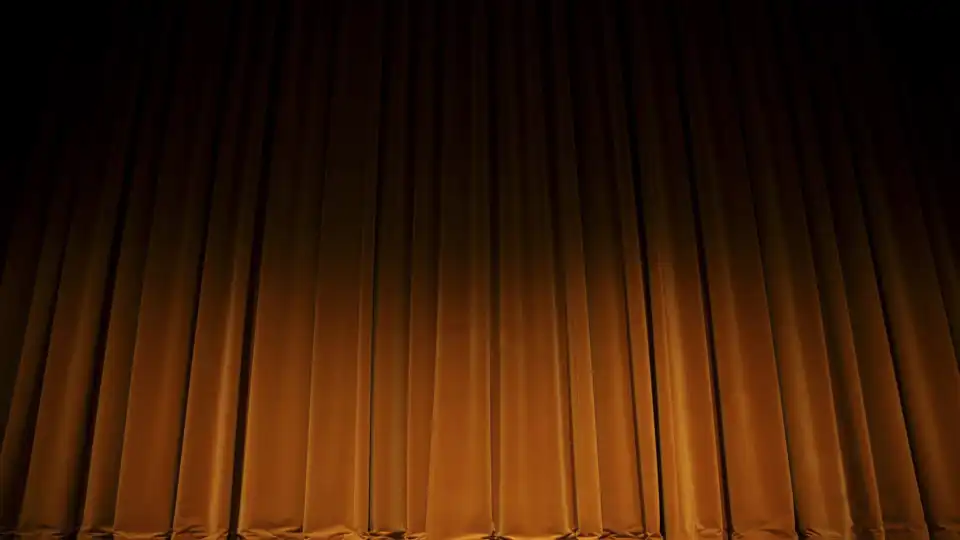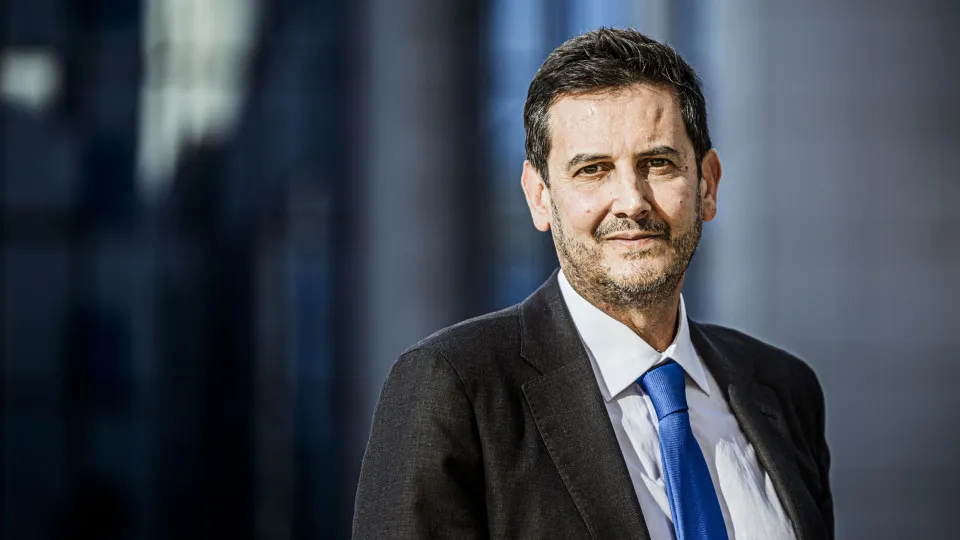
Pedro Carraca, a leading figure in the company, addressed the media following a press rehearsal of the play “Jantar” by Moira Buffini, scheduled to premiere on the 23rd. The performance was postponed by two weeks due to technical problems at their venue, occupied since September 26.
Situated next to the Portuguese Contemporary Ballet Company, the new headquarters for Artistas Unidos is a warehouse of over 800 square meters, characterized by a high ceiling and a considerably worn appearance, with a roof in urgent need of repair.
The vast, empty space, into which Artistas Unidos is transporting their equipment, consists of five small glass-partitioned rooms resembling fish tanks and a bathroom. According to Pedro Carraca, the space has “a lot of potential but requires extensive work.”
“It’s a location with potential for the future, with an interesting size and many possibilities, but it will require significant investment,” estimated at “around one million euros.” “I’m not overestimating,” he emphasized.
Plans for the venue include a new roof, electrical installations, renovation of walls, and the construction of restrooms and emergency exits, tasks described as “herculean” for the company founded by Jorge Silva Melo in 1995.
“After 30 years and 200 shows, we’ve gained a theater,” expressed Pedro Carraca, with irony, while acknowledging the Lisbon City Council’s efforts to secure them a home. “Otherwise, the company would’ve closed.”
The Lisbon municipality always showed a willingness to find space for the company after they had to leave Teatro da Politécnica, noted Carraca.
“Our issue was resolved, and we owe public gratitude for that,” Carraca stated, referring to Lisbon’s Mayor Carlos Moedas.
Operating under a 10-year renewable lease agreement, the company endured “very difficult and uncertain” times since leaving Teatro da Politécnica in July 2024.
While they celebrate a “new home” and “access to the space,” they also face the “significant investment” needed to convert it into a theater, overcoming the “painful transition” they’ve faced.
At Teatro da Politécnica, they had to dismantle a space they had occupied for 13 years “to store things we aren’t even sure are still there,” lamented Carraca, adding that “the demise of that space,” was also “the death of a space for the city.”
Reflecting on the numerous relocations, he remarked, “It wasn’t the first, second, third, or even the fourth time this happened to us, yet we hoped to alter this reality.”
He also recounted the negotiations with the Lisbon council, the decision to leave Politécnica, and the move to Marvila, with a possible return to A Capital, a space they occupied in the late 1990s and early 2000s, considered in between.
This “journey” balanced potential future realizations with the available spaces, with Artistas Unidos steadfastly maintaining their activity, which was “essential” for the company.
With support from various institutions such as Teatro Meridional, Lisbon’s municipality, and the Centro Cultural de Belém, among others, Artistas Unidos managed to continue showcasing their productions, receiving “solidarity from various groups,” Carraca shared.
Without this continued function, Carraca expressed concern that the company might not have survived, given existing obligations with the Direção-Geral das Artes due to the lack of a permanent site.
“From a group morale perspective, I don’t know how we would have kept hope alive, remaining inactive for a year.”
Discussing the current challenge, Carraca described it as “a painful energy” akin to their experience at Politécnica, evoking a “sense of futility” that was distressing.
Turning to a “struggle for survival,” described as a constructive effort imbued with hope, the company continued to persevere together, from actors to cleaning staff, confident they would succeed.
In this phase described as involving many discussions and tense but positive moments within the group, they moved into a new chapter.
Delighted that their efforts led to progress, Carraca noted they could now “break their backs and minds” to plan the new premises’ reconstruction.
On whether initial roof repairs will require closure, Carraca expressed uncertainty but remained optimistic.
Before any renovations, for which quotations are being sought, they must address clogged gutters on the roof, uncertain of its safety.
With the rainy season approaching, the company needs the rain to identify leaks.
Regarding renovations, Carraca noted that the company had saved some funds for an uncertain future, though insufficient against the building’s needs, prompting explorations for funding solutions.
They hope to avoid closing the theater, believing the roof work can be phased. The state of the building is dire, still disordered and unready to accommodate guests, Carraca explained.
“But we’ll open it and demonstrate its current state,” he stated, envisioning continued improvements over time.
Just as they invited people to help clear Teatro da Politécnica, they might also call upon them to contribute in the new space, perhaps to paint walls, assist in the construction, or even initiate crowdfunding, Carraca quipped.
The ultimate goal, enabling two operational spaces—one for the company and another for hosting groups without a venue—remains a work in progress. Offering performance opportunities at fair terms is a priority.
Though the timeline is unclear, Carraca hopes to realize this vision within a year.
The new space also provides flexibility for performing across different warehouse areas, beyond the traditional stage setting, a concept they once executed at A Capital.
The immediate certainty for the company is the premiere of “Jantar” and what Carraca termed “a positive nightmare.”
Adhering to the principle of operating in the capital, despite receiving offers to relocate, remains important for the group.
“A group named after a play titled ‘António, um rapaz de Lisboa’, should stay in Lisbon,” remarked Carraca, recalling the company’s inception.
“Either they want us or they don’t. Either this project is crucial for the city, or it’s not. If not, we’ll end it,” he concluded.




